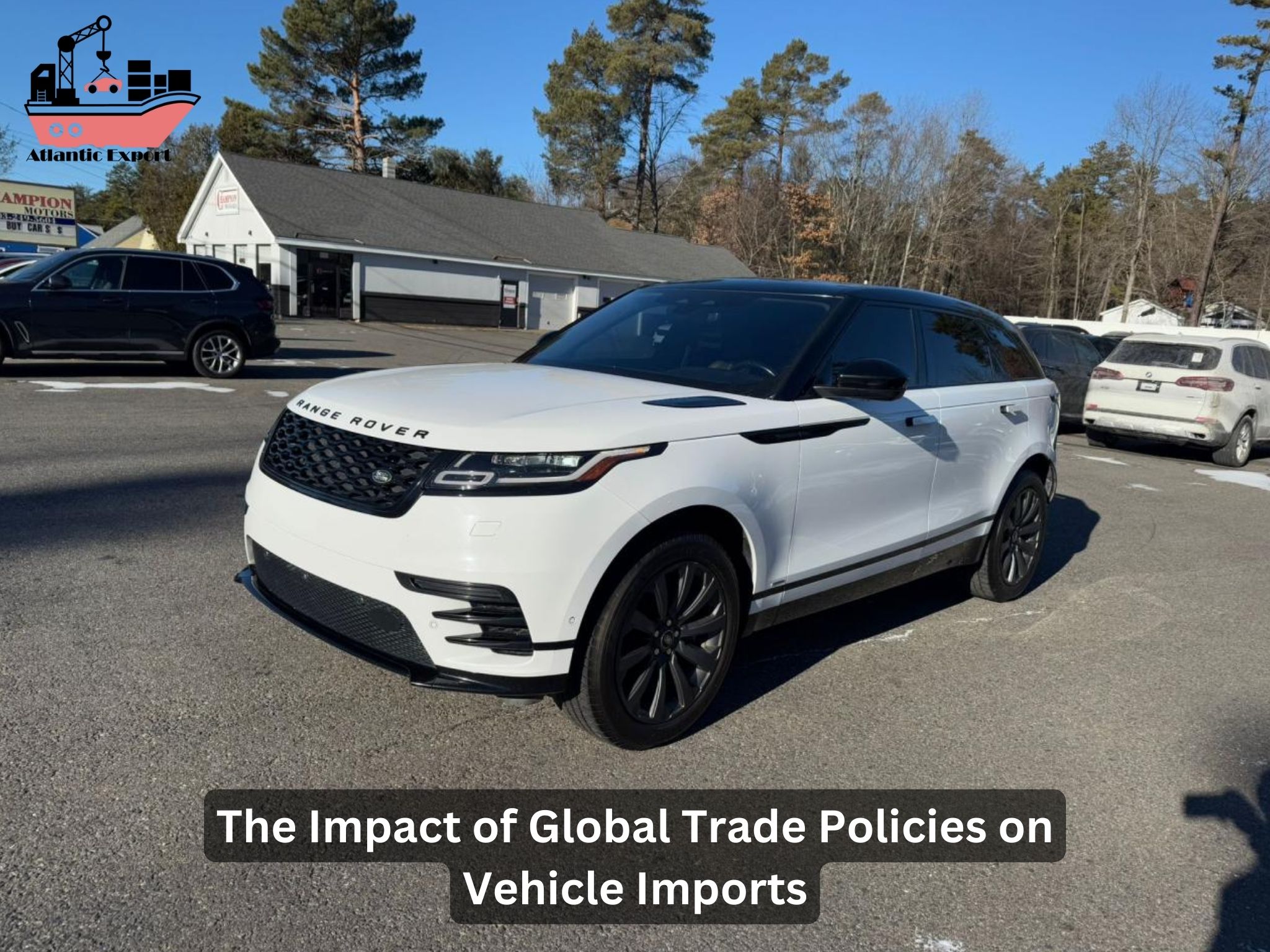Global trade policies significantly influence the automotive industry, shaping the costs, supply chains, and market dynamics for vehicle imports. From tariff regulations to international agreements, the ripple effects of these policies impact manufacturers, suppliers, and consumers worldwide. In this comprehensive analysis, we explore the far-reaching consequences of global trade policies on the vehicle import landscape.
Tariffs and Their Effect on the Automotive Industry
Tariffs are a primary driver of price fluctuations in the vehicle import sector. These trade barriers, often imposed to protect domestic industries, directly increase the cost of imported vehicles and components. For instance, the Trump administration’s tariffs on steel and aluminum raised production costs for automakers, subsequently inflating vehicle prices.
Global Tariff Examples
- United States Tariffs: Policies such as the Section 232 tariffs on automotive imports aimed to shield domestic manufacturers but added an estimated $2,000 to the price of imported vehicles.
- European Union’s Measures: The European Commission imposes import duties to balance foreign competition, particularly from Chinese automakers like BYD.
- Canada and Mexico: The United States-Mexico-Canada Agreement (USMCA) introduced rules on regional content that complicated supply chains but fostered local manufacturing.
Trade Agreements and International Collaboration
Trade agreements play a crucial role in reducing barriers and fostering global supply chain efficiency. However, shifts in these agreements can either bolster or disrupt the auto industry.
North American Free Trade Agreement (NAFTA) vs. USMCA
The transition from NAFTA to the USMCA redefined regulations for vehicle production. The USMCA requires 75% of a vehicle’s components to be manufactured in North America, compared to 62.5% under NAFTA. While this encourages regional production, it also increases costs for automakers relying on international suppliers.
World Trade Organization (WTO) Impact
The WTO promotes free trade agreements that support the flow of automotive components across borders. However, disputes, such as the ongoing trade war with China, highlight the fragility of these frameworks.
Supply Chains and Automotive Logistics
Global supply chains are the backbone of the automotive sector, ensuring the seamless movement of parts and vehicles across countries. Disruptions in supply chains due to tariffs or policy changes can lead to production delays and higher costs.
Key Challenges in Supply Chains
- Non-Tariff Barriers: Regulatory differences, safety standards, and environmental laws often create logistical bottlenecks.
- Geopolitical Tensions: The trade war with China exemplifies how strained relations between countries can hinder supply chain efficiency.
- Cost Increases: Rising tariffs lead to higher costs for raw materials, which directly impacts production.
Case Study: Electric Vehicles (EVs)
EV production is heavily reliant on imports of batteries and components from regions like China. Tariffs and restrictions on these imports challenge the competitiveness of domestic EV manufacturers.
Impact on Car Manufacturers and Domestic Industries
The imposition of global trade policies has significant implications for automakers, suppliers, and stakeholders in the automotive industry. While policies aim to protect domestic manufacturers, they often create unintended consequences.
Implications for Automakers
- Higher Production Costs: Tariffs on imported parts increase costs for OEMs (Original Equipment Manufacturers).
- Reduced Competitiveness: Foreign automakers operating in countries with stringent tariffs struggle to compete with domestic manufacturers.
- Joint Ventures: To navigate trade barriers, many companies form joint ventures, especially in regions with restrictive policies like China.
Consumer Impact
Trade policies ultimately affect consumers through higher prices. For example, increased costs of imported automotive parts are passed on to buyers, making vehicles less affordable.
Trade Wars and Their Repercussions
Trade wars have become a significant disruptor of the global automotive landscape. The U.S.-China trade war, in particular, has strained relations and increased tariffs on automotive imports.
Key Outcomes of the Trade War
- Supply Chain Realignment: Automakers are shifting production to avoid tariffs, resulting in higher logistics costs.
- Competitiveness of Chinese Automakers: Companies like BYD have faced hurdles entering Western markets due to tariffs and protectionist policies.
- Impact on EVs: Electric vehicle manufacturers are particularly vulnerable, as battery imports face increased duties.
The Future of Trade Policies in the Automotive Sector
The evolving nature of trade policies presents both opportunities and challenges for the automotive industry. Emerging trends, such as the push for sustainable practices and electric vehicles, are reshaping trade dynamics.
Recommendations for Industry Stakeholders
- Adaptation to Regional Rules: Compliance with policies like the USMCA is crucial for maintaining competitiveness.
- Investment in Local Production: Reducing reliance on imports can mitigate the impact of tariffs.
- Strategic Partnerships: Collaborations with international suppliers and logistics providers can streamline operations.
Why Choose Atlantic Export for Your Automotive Needs?
At Atlantic Export, we specialize in navigating the complexities of global trade policies to ensure seamless import solutions for the automotive sector. Whether you’re sourcing vehicles, parts, or EV components, our expertise in trade regulations guarantees cost-effective and compliant operations.
FAQs
1. How do tariffs affect vehicle imports?
Tariffs increase the cost of importing vehicles and parts, leading to higher production costs for automakers and elevated prices for consumers.
2. What is the role of the USMCA in the automotive industry?
The USMCA promotes regional content in vehicle production, fostering local manufacturing but increasing compliance costs for automakers.
3. How do global trade policies impact EV production?
Policies such as tariffs on battery imports raise costs for EV manufacturers, impacting their competitiveness in the global market.
4. What are non-tariff barriers in the automotive sector?
Non-tariff barriers include regulatory standards, environmental laws, and safety requirements that create obstacles in global trade.
5. Why should I choose Atlantic Export for trade solutions?
Atlantic Export provides tailored solutions for navigating trade policies, ensuring efficient and compliant automotive imports for businesses worldwide.

Leave a Reply